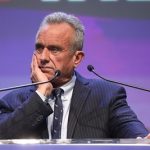Robert F. Kennedy Jr. has recently found himself in the crosshairs of Democratic hypocrisy, particularly when he took aim at none other than Sen. Bernie Sanders during his testimony before the Senate Health, Education, Labor and Pensions Committee. After being grilled by the Senate Finance Committee, Kennedy was back again, ready to expose some truths that congressmen would rather keep hidden. As he laid the ground for his nomination as Health and Human Services Secretary, Kennedy pulled the curtain back on those conveniently ignorant senators raking in piles of cash from Big Pharma.
Sanders tried to get Kennedy to promise that he would endorse universal healthcare, a notion that fits snugly into the socialist agenda Sanders has championed his entire career. Sanders pushed hard, asking Kennedy if he could guarantee that every American would receive health coverage akin to what other countries offer. Kennedy countered with an assertion that he would make America healthier than any other nation—something that certainly raised eyebrows but didn’t sit well with the senator more attuned to chasing headlines than reality.
HOLY SHIT 👀
RFK Jr. has had enough of the charade, and calls out Bernie to his face about accepting millions from pharmaceutical companies.
RFK Jr. said the quiet part out loud. Pharmaceutical companies own our politicians.
And look at how badly Bernie panics.
MUST WATCH! pic.twitter.com/EVH7Lwp47i
— Clandestine (@WarClandestine) January 30, 2025
As Sanders continued to hammer away at Kennedy for an answer, Kennedy turned the spotlight back to the corruption casually lurking within Congress, calling out Sanders and his fellow lawmakers for sitting comfortably on the payroll of pharmaceutical companies. It wasn’t long before the applause for Kennedy echoed through the room, sending Sanders into a defense mode that resembled a cornered animal. The irony was rich, as Kennedy pointed out that many members of Congress, including Sanders, had accepted millions in donations from pharma while pretending to advocate for the common citizen.
Of course, Sanders, being Sanders, denied the allegations, nervously insisting that his contributions came from “workers” and not corrupt corporate interests. Despite Kennedy’s firm reminders of Sanders’ standing as the top recipient of pharmaceutical cash—tallied at an astonishing $1.5 million—Sanders continued to wiggle out of the charge, attributing all his funding to diligent workers. It was a classic case of deflection—trying to spin tales while the scorecard clearly showed otherwise.
The tension escalated further when Sanders, determined to show he’s a serious individual and not merely an establishment puppet, had a meltdown over baby onesies during Kennedy’s previous hearing. Yes, the once presidential candidate got all heated over clothing for infants, specifically items emblazoned with phrases like “Unvaxxed Unafraid.” One can only wonder if Sanders was attempting to draw attention away from more pressing matters—or perhaps he was just showing concern for babies’ fashion choices while his financial ties to Big Pharma loomed overhead.
In the end, the back-and-forth was a showcase of how even the most self-righteous lawmakers can falter when confronted with their own intricate web of financial affiliations. Kennedy may be a controversial figure, but he’s certainly not wrong about the hypocrisy oozing from Washington. The irony that many who lambaste him are “benefiting” from the very industry they publicly oppose adds a layer of absurdity that even the most seasoned political commentators couldn’t ignore.




